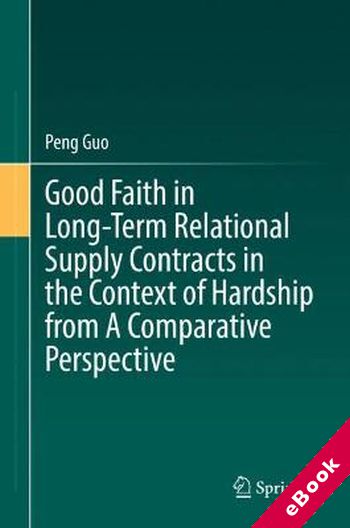
The device(s) you use to access the eBook content must be authorized with an Adobe ID before you download the product otherwise it will fail to register correctly.
For further information see https://www.wildy.com/ebook-formats
Once the order is confirmed an automated e-mail will be sent to you to allow you to download the eBook.
All eBooks are supplied firm sale and cannot be returned. If you believe there is a fault with your eBook then contact us on ebooks@wildy.com and we will help in resolving the issue. This does not affect your statutory rights.
This book provides fair and acceptable solutions to hardship issues in long-term relational supply contracts. This book uses an approach to strike a balance between the traditional approach underlying classical contract law which emphasises the almost absolute prevalence of the principle of pacta sunt servanda and a flexible approach that is based on the principle of clausula rebus sic stantibus.
This book argues for an emerging principle of pacta sunt servanda bona fide on the basis of the relational contract theory. Additionally, this book demonstrates how good faith can serve as a foundation for imposing a duty to renegotiate on the parties. The aim of this book is rather to propose how relational contract theory can be applied to the analysis of specific legal rules in general. Lastly, this boos highlights how the duty to renegotiate and the power to adapt a contract can be further developed upon the occurrence of hardship, based on good faith and the relational nature and characteristics of a long-term relational supply contract. This book explores and enriches the existing research on relational contract theory concentrates primarily on its application in domestic contract laws, particularly in the regulation of long-term contracts in American contract law. As an outcome this book provides a more feasible and satisfactory approach for courts or arbitral tribunals to undertake when facing hardship issues in international contract disputes. Overall, hardship themes, long-term relational supply contracts and good faith are examined extensively.